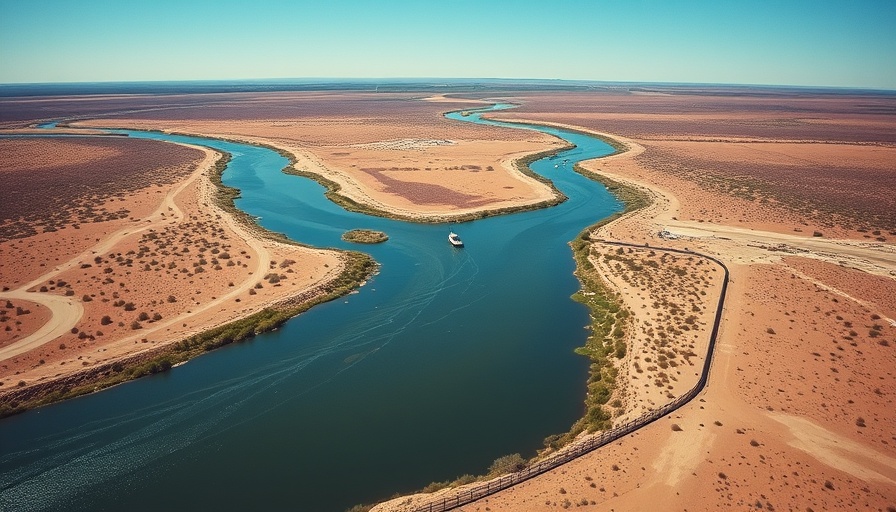
The Complicated Truth Behind Texas’ Border Controls
As political tensions regarding immigration continue to escalate, Texas Governor Greg Abbott recently credited former President Trump for the state’s decision to close the Jim Hogg County booking facility as part of its robust Operation Lone Star. The facility's closure, he argued, was a testament to the effectiveness of Trump's immigration policies, suggesting that illegal border crossings are at an all-time low. However, a closer examination reveals a more intricate reality that challenges these assertions.
Understanding Operation Lone Star
Initiated in 2021, Operation Lone Star is a significant response from Texas to perceived inadequacies in federal border control under the Biden Administration. The operation deployed thousands of National Guard troops and Department of Public Safety officers to patrol the 1,250-mile Texas-Mexico border. Its aim: to tackle issues related to human smuggling and illegal crossings. Yet, the reported numbers tell a different story.
Drop in Arrests: Is the System Working?
Data reveals a stark decline in arrests at the Jim Hogg facility. From an average of 67 people processed each month in 2022 to just 26 last year, it's clear that something has shifted. Abbott attributed this drop to Trump's policies; nonetheless, in January, Border Patrol reported only 21,593 arrests, the lowest figure seen since May 2020. The reasons behind this trend warrant exploration.
Implications for Texas’ Fiscal Future
The cost of Operation Lone Star has soared to an eye-watering $11 billion, prompting the state to seek reimbursement from the federal government. As lawmakers in Texas deliberate a budget proposal that includes an additional $6.5 billion for border security, questions arise regarding the necessity of such high spending in light of declining arrest numbers. Are resources being allocated efficiently, or is there a need for a reevaluation of strategies?
A Balancing Act: Local Perspectives and Insights
What does this mean for Texas residents who often find themselves on the front lines of border policy? For locals in areas like Del Rio or McAllen, the realities of border security extend beyond numbers and budget discussions. Community sentiments reveal a blend of fear, frustration, and resilience as they navigate the complexities of border-related issues that impact their lives directly. Local voices often highlight the human element, reminding policymakers that the stakes are high for real people, not just statistics.
Future Predictions: What Lies Ahead?
As the future of border policy remains in flux, various scenarios could unfold. It is essential to examine how potential changes in federal leadership and policy could influence state initiatives. Could a shift in the political landscape lead to modified enforcement practices, or will state strategies adapt to maintain the status quo? Quite possibly, the latter—but ongoing dialogue informed by data and community experiences is critical.
Conclusion: Your Role in Shaping Texas News
Understanding the intricacies of border policy is vital for Texas residents and engaged citizens alike. As developments unfold, we encourage you to stay informed about local news, engage in community discussions, and hold lawmakers accountable for their decisions regarding border security. The narrative around immigration is not just a political one; it is personal and profoundly affects communities across Texas.
 Add Element
Add Element  Add Row
Add Row 



Write A Comment